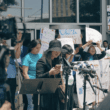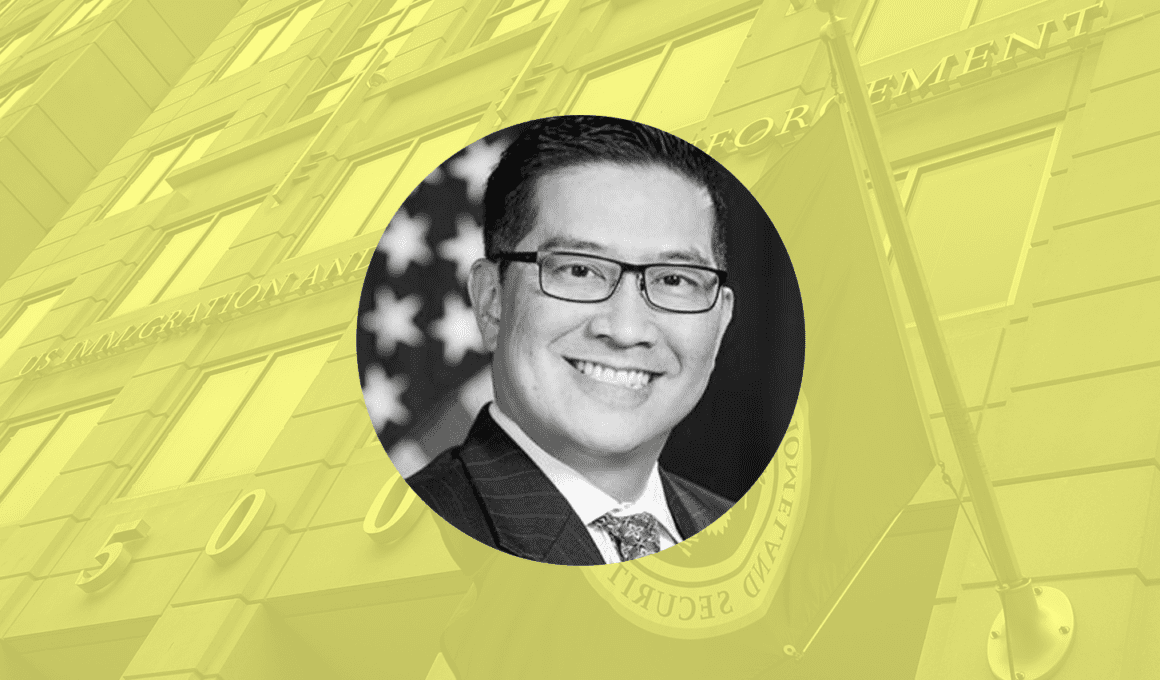The U.S. Department of Homeland Security (DHS) has selected Vietnamese refugee Tony H. Pham to become the next acting director of Immigration and Customs Enforcement (ICE), a move that could have wide-ranging consequences for AAPI communities and which is likely to spark an uproar among progressive Asian American advocacy groups.
The news was first reported by the Washington Examiner, and ICE confirmed Pham’s appointment to The Yappie on Tuesday.
“Tony previously served as ICE’s principal legal advisor for the Office of the Principal Legal Advisor,” an ICE spokesperson said in a statement to The Yappie. “As a seasoned leader with DHS, Tony will ensure ICE continues to safeguard our country’s borders from crime and illegal immigration.”
From refugee to prosecutor
Pham held various government roles in the past decade—including a two-year stint as superintendent of the Virginia Peninsula Regional Jail—and has a sizable presence in the state’s Asian American legal community.
Prior to his role as the top lawyer at ICE, Pham briefly served as a Special Assistant U.S. Attorney handling narcotic trafficking and illegal weapons matters, and led Richmond’s first ever gang prosecution unit in 2006. He also served as a prosecutor in the Richmond Commonwealth’s Attorney’s Office and later worked as a counsel for the Richmond Sheriff’s Office.
Pham became the first Asian American attorney to serve on the Virginia State Bar’s Disciplinary Board and was appointed by former Governor Tim Kaine (D) to the state’s Asian American Advisory Board in 2010. He served as president of the Asian Pacific American Bar Association of Virginia, an affiliate of the National Asian Pacific American Bar Association (NAPABA), in 2009 and was recognized as one of Virginia Lawyers Weekly’s “Leaders in the Law” for his leadership in criminal law in the Asian American community.
Furthermore, Pham is no stranger to conservative politics in Virginia. In 2015, he launched an unsuccessful bid to unseat Henrico County Commonwealth Attorney Shannon Taylor (D), where he was the Republican nominee.
During the 2015 race, Pham’s campaign posted photos of him with several prominent conservative figures that have since informed, shaped, and implemented the Trump administration’s hardline immigration policies—including current acting Deputy Homeland Security Secretary Ken Cuccinelli, who served as Virginia’s attorney general (R) from 2010 through 2014.
Pham is a refugee of the Vietnam War, but public profiles appear to disagree on when he arrived in the U.S.—with accounts claiming he came before, during, and after the fall of Saigon.
For example, while his DHS bio asserts that his family arrived “after the fall of Saigon in 1975,” a 2018 story in the Virginia Gazetteshows Pham with a photocopy of a letter dated April 19, 1975, which it states was “the day he, his mother and two sisters stepped aboard one of the final commercial flights out of [Vietnam]”—more than a week before the last American helicopter left Saigon on April 30, 1975.
Pham and his family lived at Fort Chaffee in northwest Arkansas, one of four domestic military bases to take in refugees from the war, before being sponsored by a church in Henrico County. After ten years, the family was rewarded with U.S. citizenship in 1985, an ICE spokesperson told The Yappie.
Pham has shared his family’s story, as well as his naturalization experience. with numerous local media outlets and voters over the years.
“Growing up in a new land and in a new culture was a daunting task,” Pham’s campaign wrote in 2015. “His parents worked 2 jobs a piece to provide for a family of 5. His father was an auto mechanic by day and a janitor by night. His mother would sew clothes as a seamstress and then work as a movie ticket salesperson. While the standard riches were scarce, the home was full of faith and love. Tony’s family always focused on the need to better their situation through education.”
In a 2018 post on the conservative blog BearingDrift, Pham further reflected on his journey to the U.S.
“Where else than these United States could a family of hungry refugees arrive and survive? Where else on this planet could such freedoms and opportunities be so readily available? America owes me nothing,” he concluded.
“I have a debt which can never be repaid. I recognize that on April 19th, 1975, I signed a promissory note for freedom which I will forever be repaying.”
An agency under fire
Pham is now charged with leading what has become one of the most controversial and despised federal agencies in the Trump era.
In addition to fierce criticism of ICE’s management of the country’s immigration detention centers during the coronavirus pandemic, AAPI groups and immigration activists have long condemned the agency’s mass deportation of Asian refugees, certain green card holders, and asylum-seeker—including 30 Vietnamese American community members earlier this month.
Any cautious optimism from AAPI advocates for progressive leadership at ICE is likely to be quashed in the near future. Pham joined the agency earlier this year as a political appointee, and a senior Homeland Security official told CNN on Tuesday that he is “very much aligned with the current administration.”
The Yappie previously reported that the agency came under fire in July after issuing guidance that would have barred international students from staying in the U.S. while taking classes remotely this fall. ICE reversed course after congressional Democrats, civil rights groups, state officials, and more than 200 universities backed legal challenges to the restrictions.
ICE also has a history of enacting policies specifically impacting undocumented AAPI immigrants. In February, the Supreme Court sided with the Trump administration and lifted the injunctions against its now-suspended controversial “public charge” rule, which allows immigration officers to deny green cards if an applicant used certain forms of assistance such as Medicaid or food stamps.
In 2017, ICE raided several Asian restaurants in Mississippi and detained more than 50 individuals. By June 2018, nearly 5,000 Asian immigrants were detained nationwide.
The Asian American population grew by nearly 72 percent between 2000 and 2015, according to a Pew study. Of 11 million undocumented immigrants in the United States, 1.7 million are of Asian descent.
This story has been updated with a statement from ICE and additional context.









